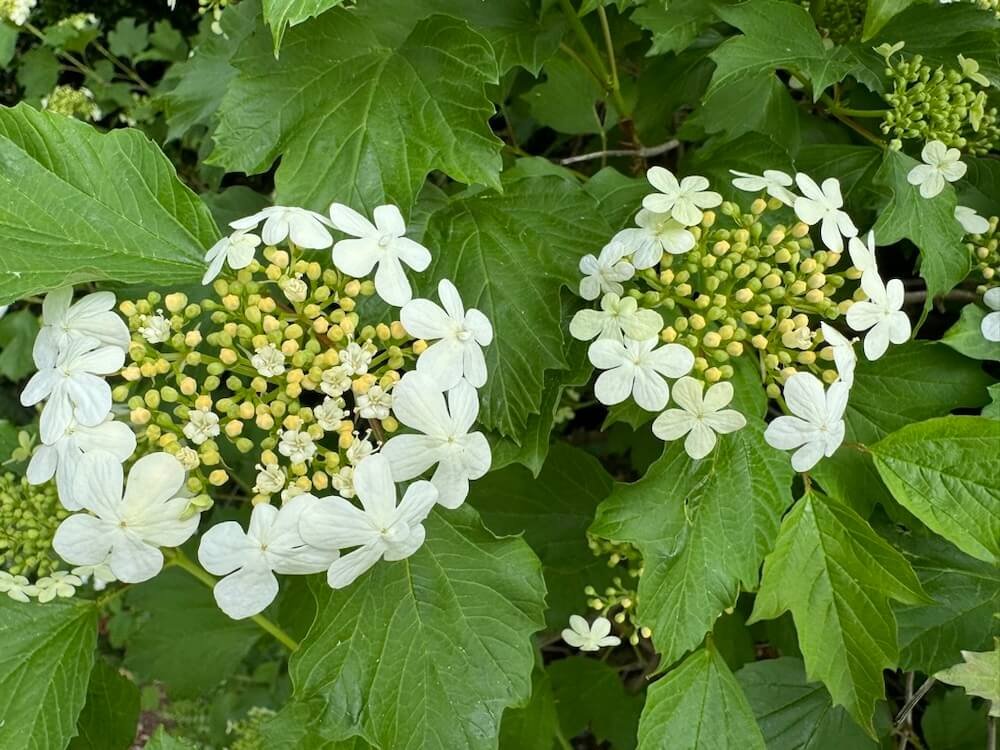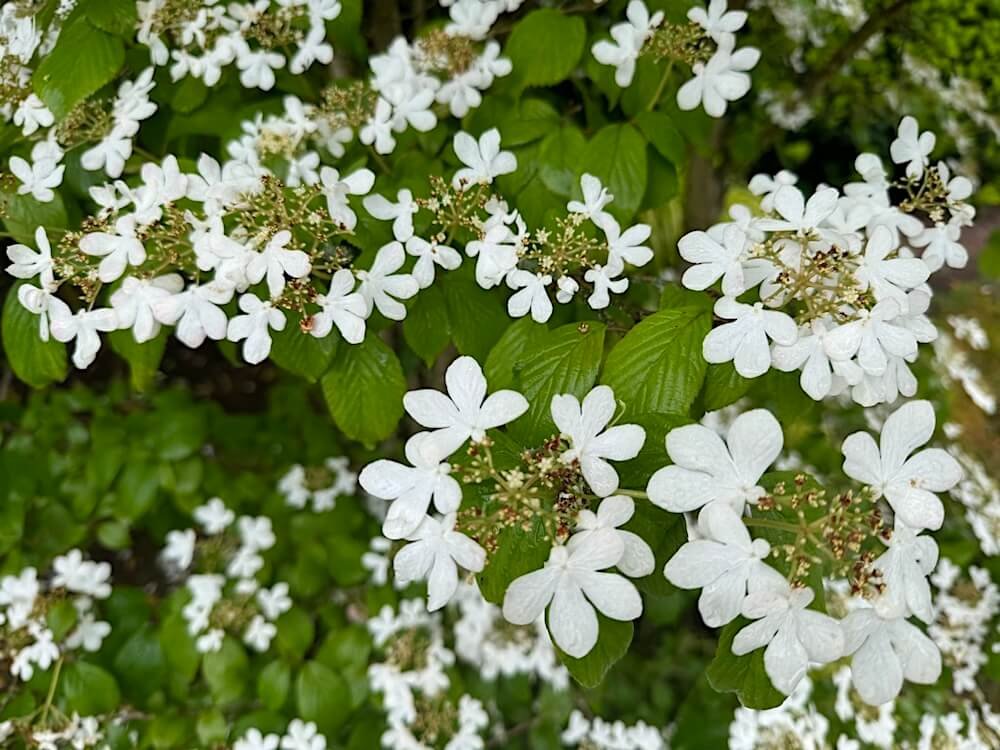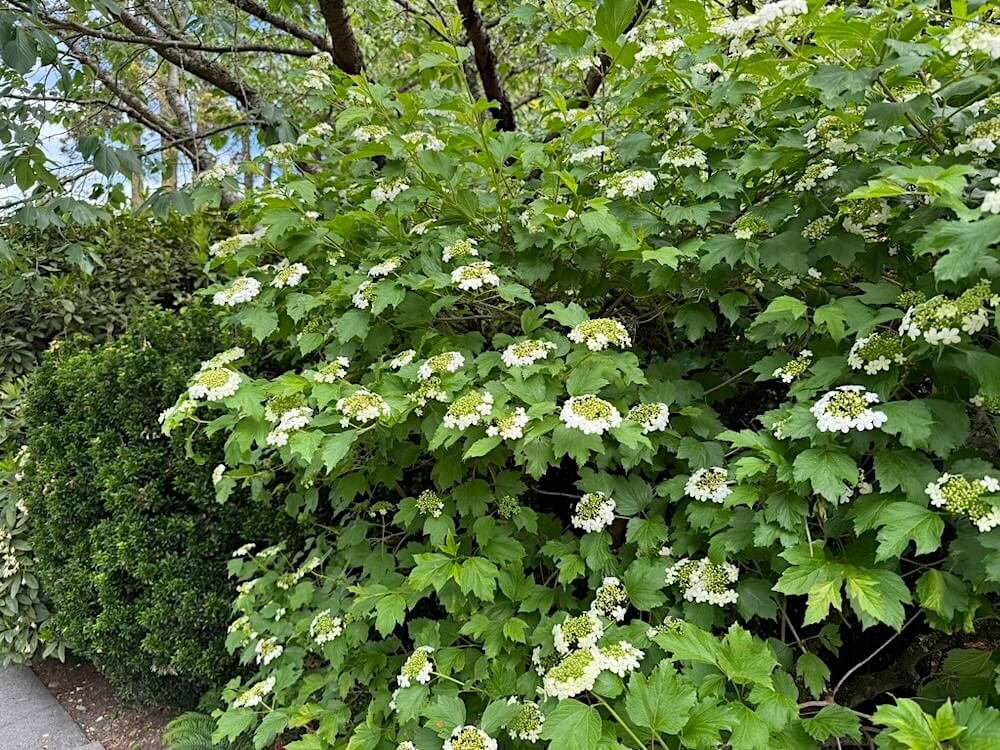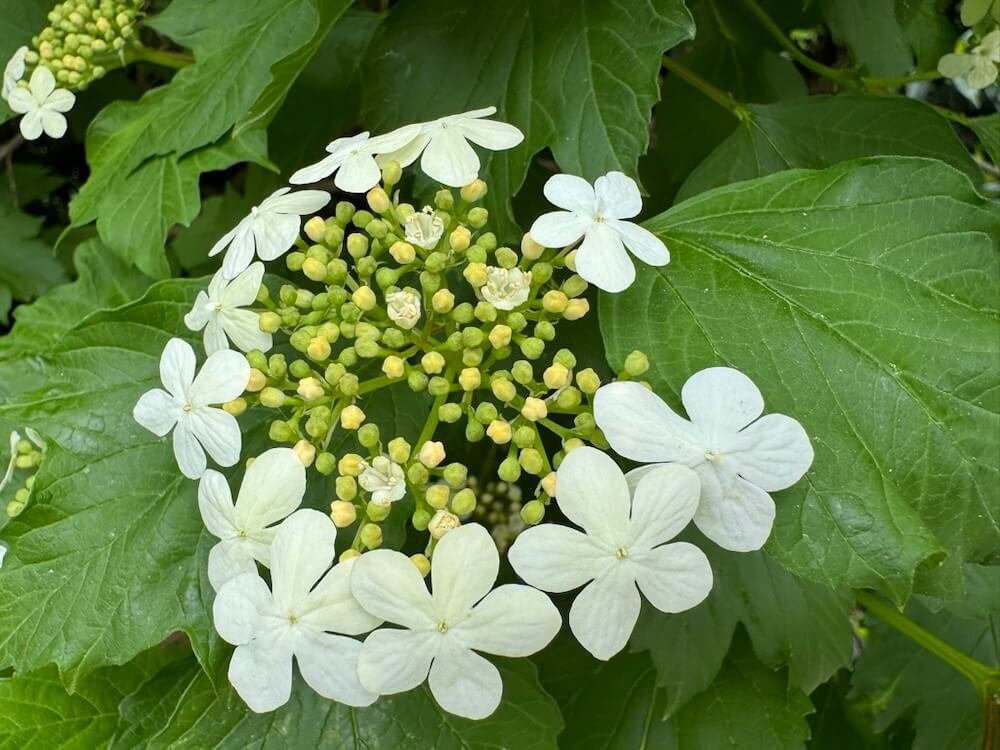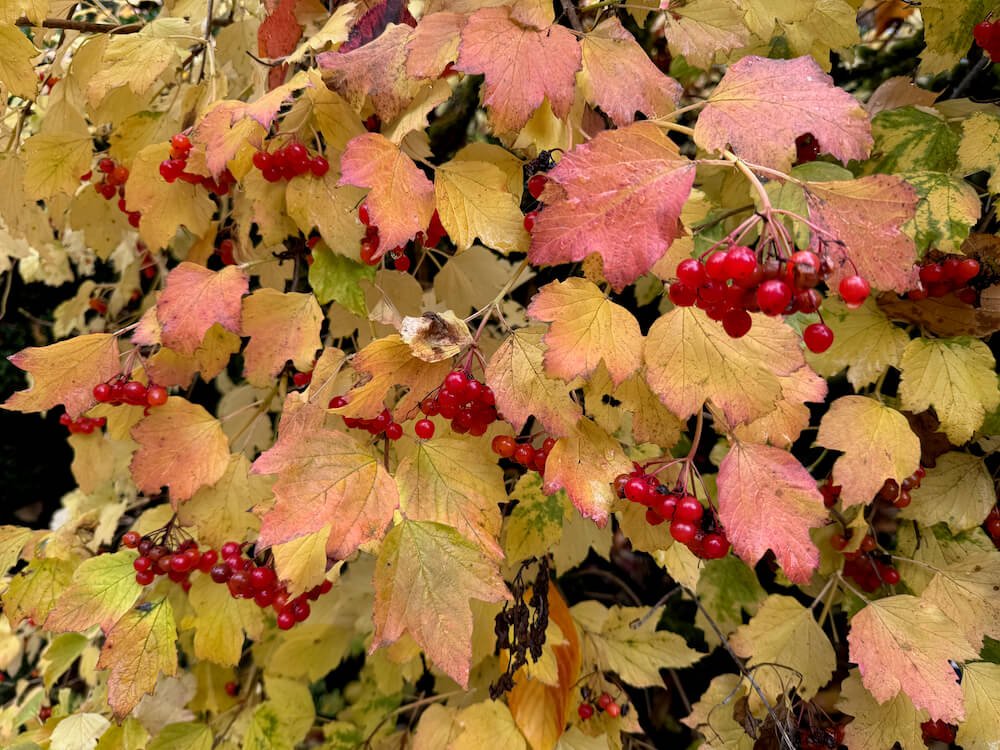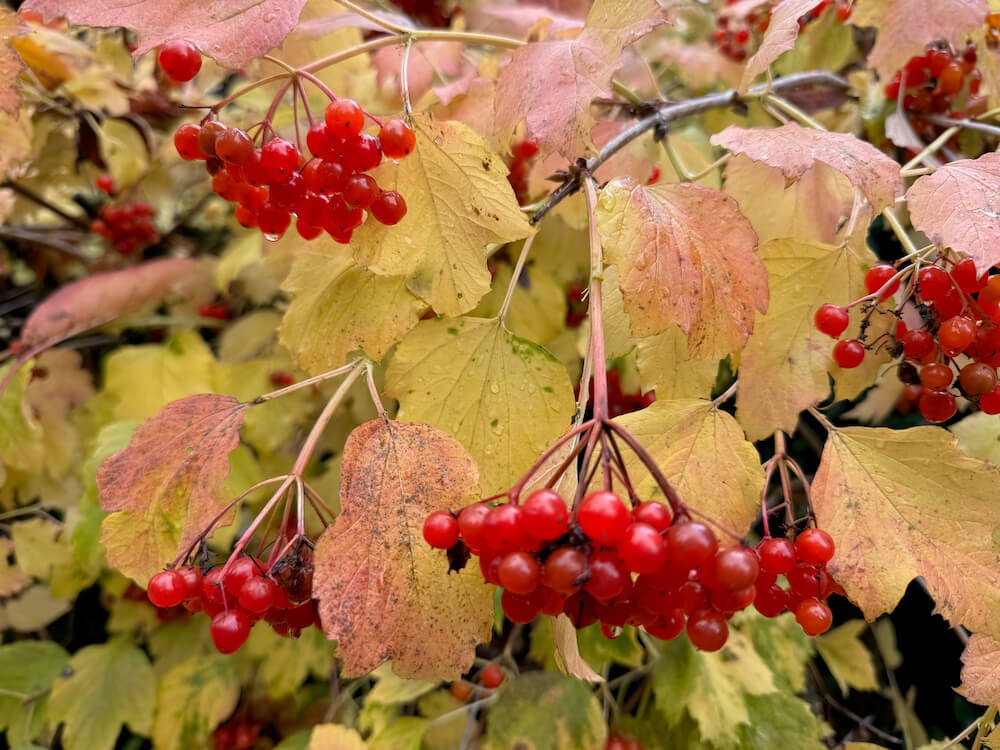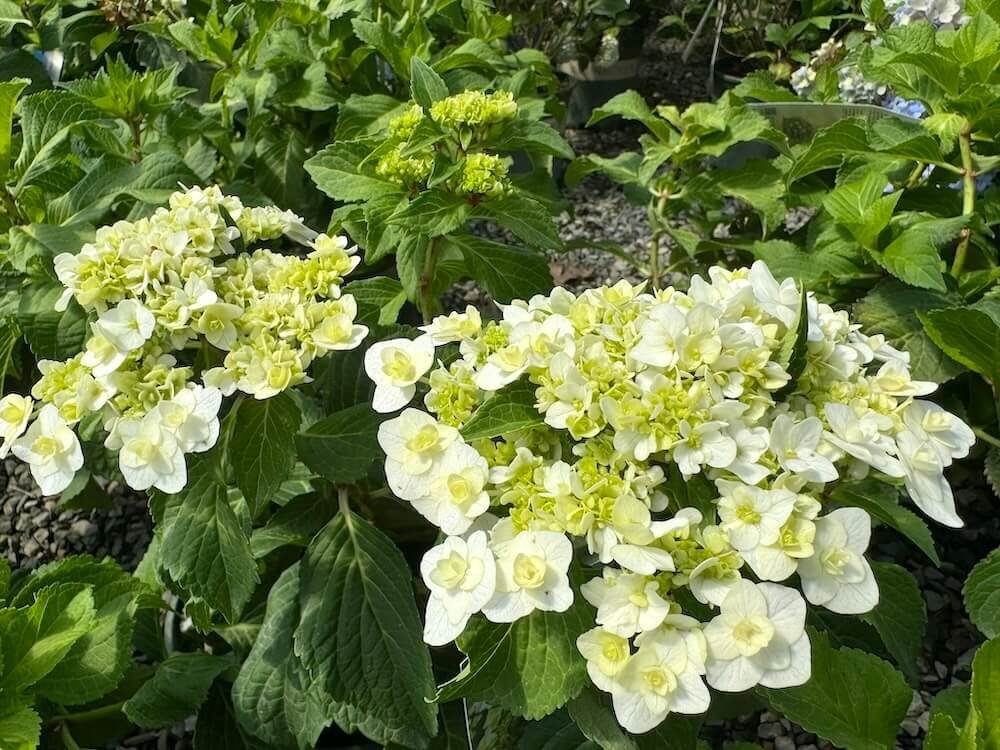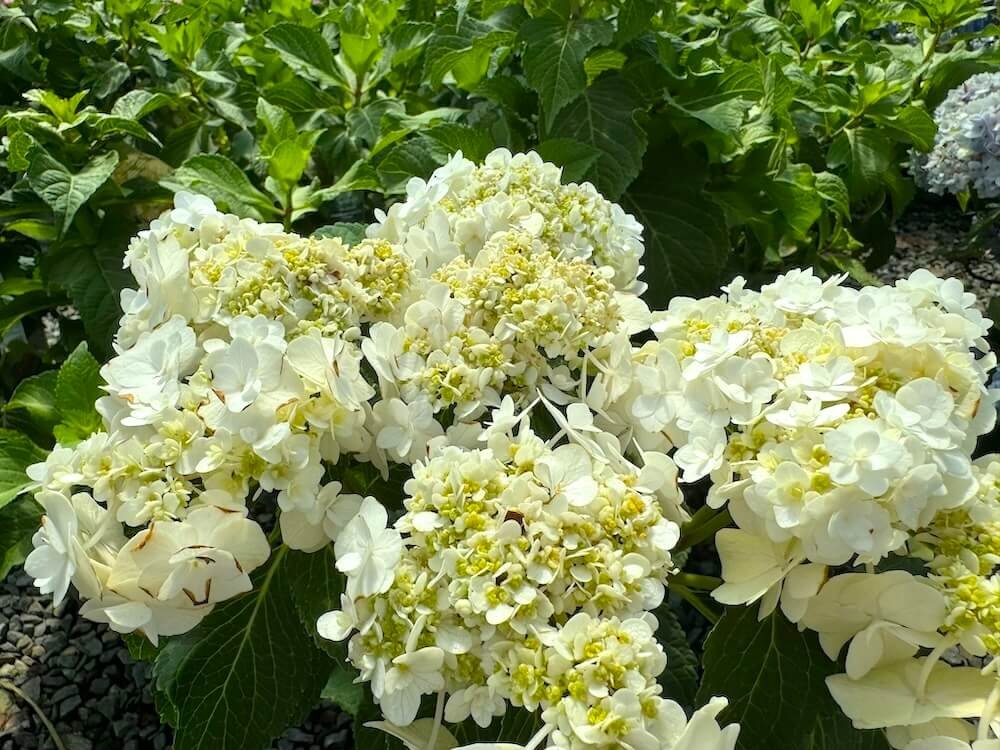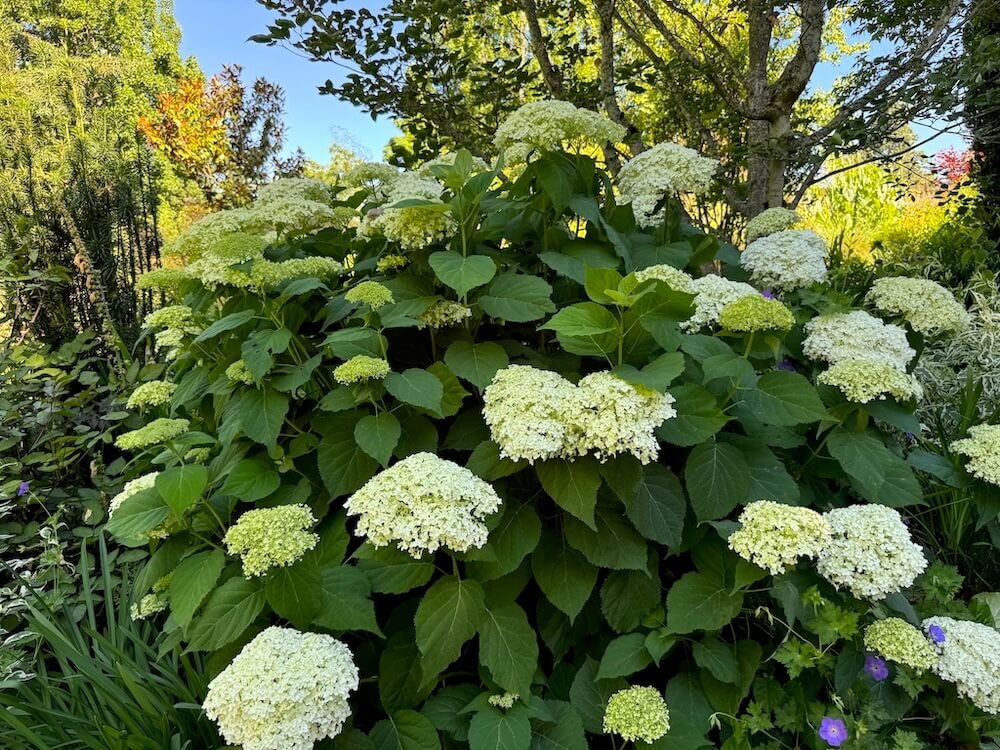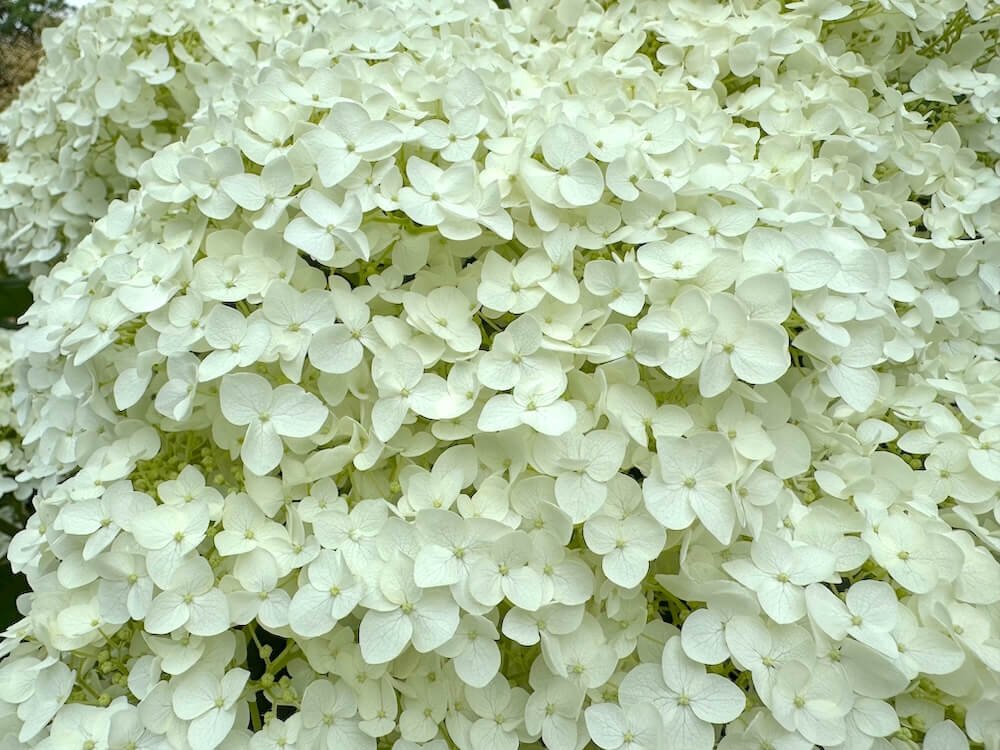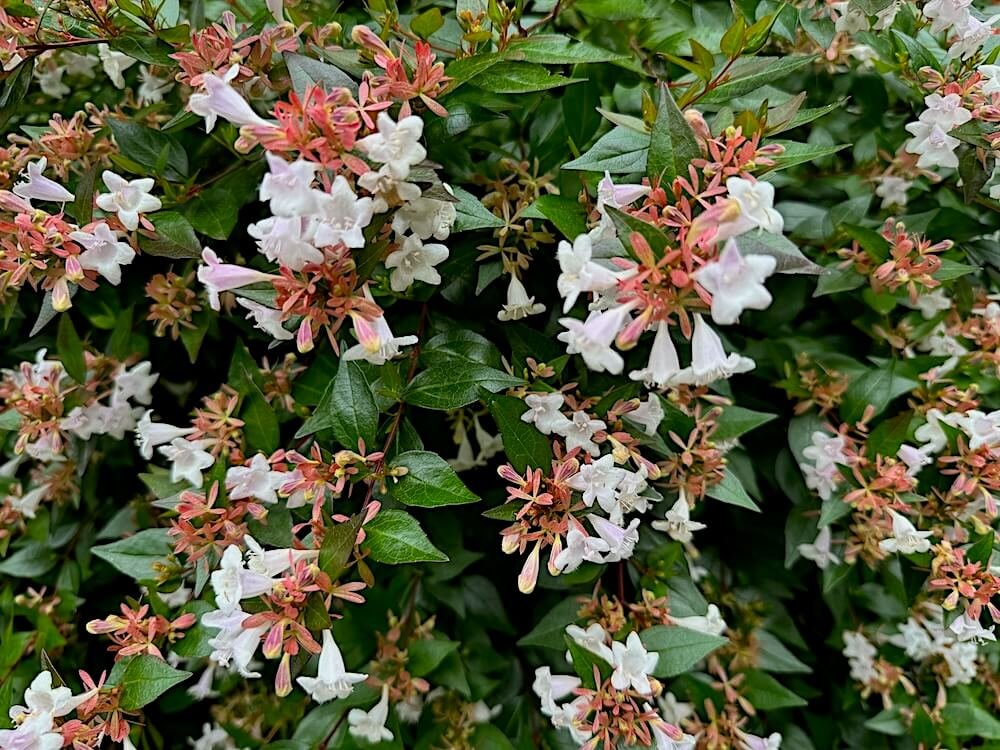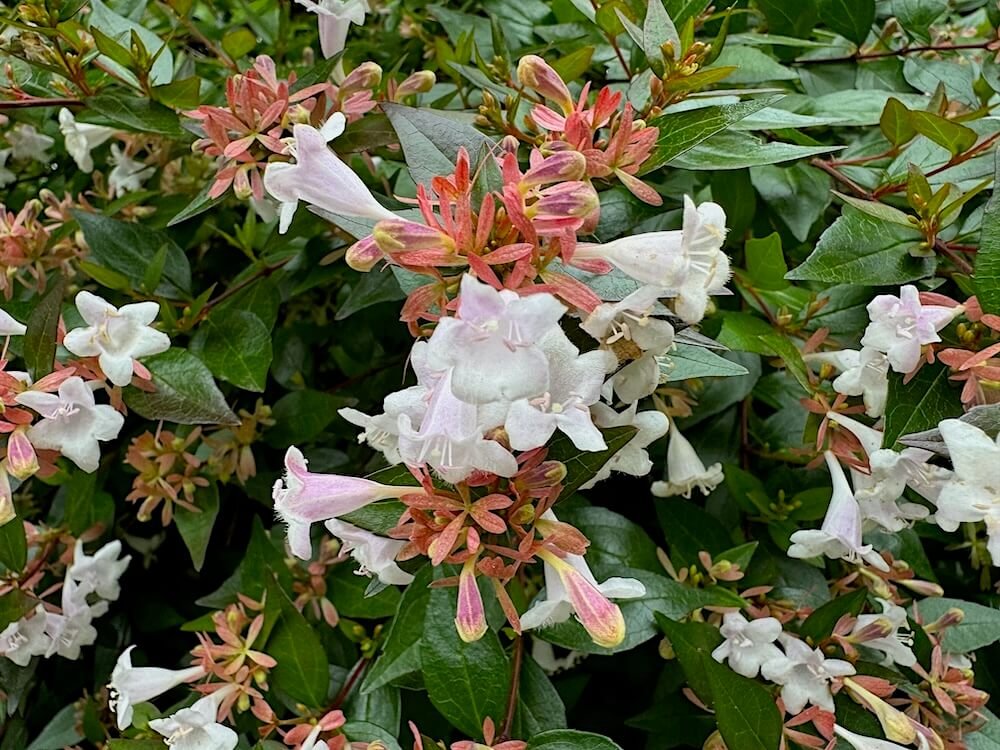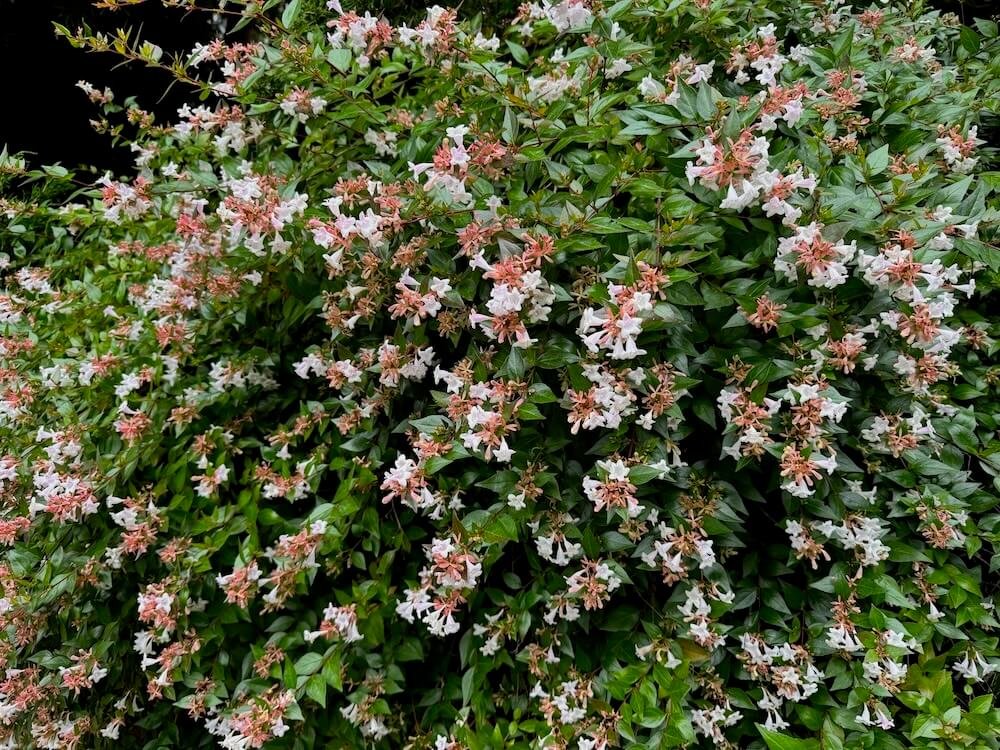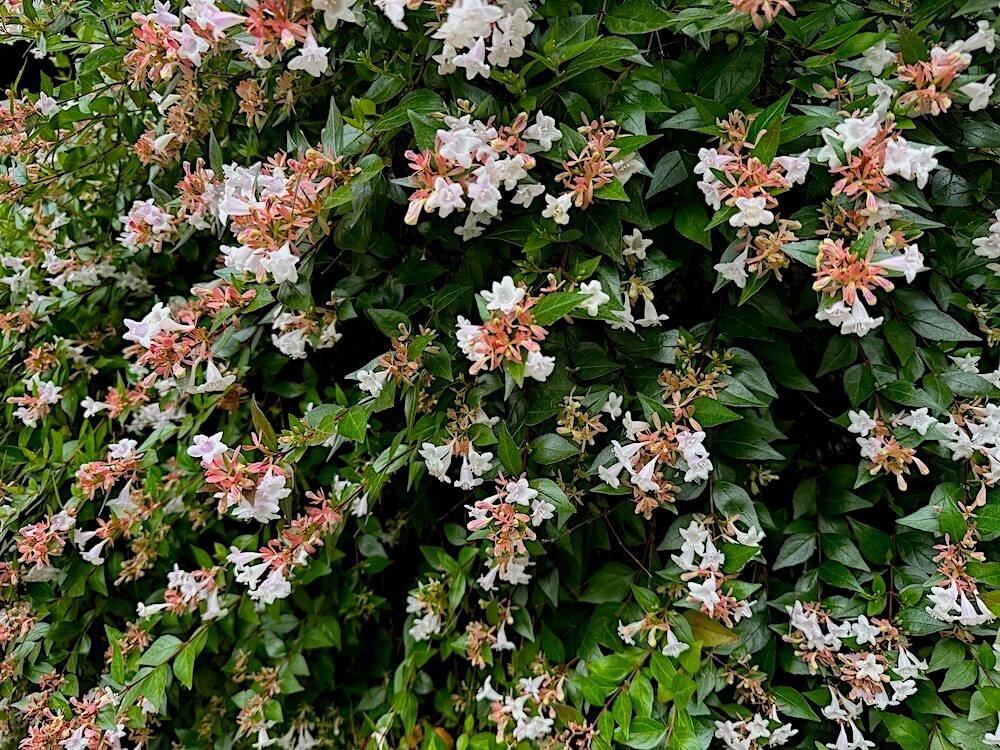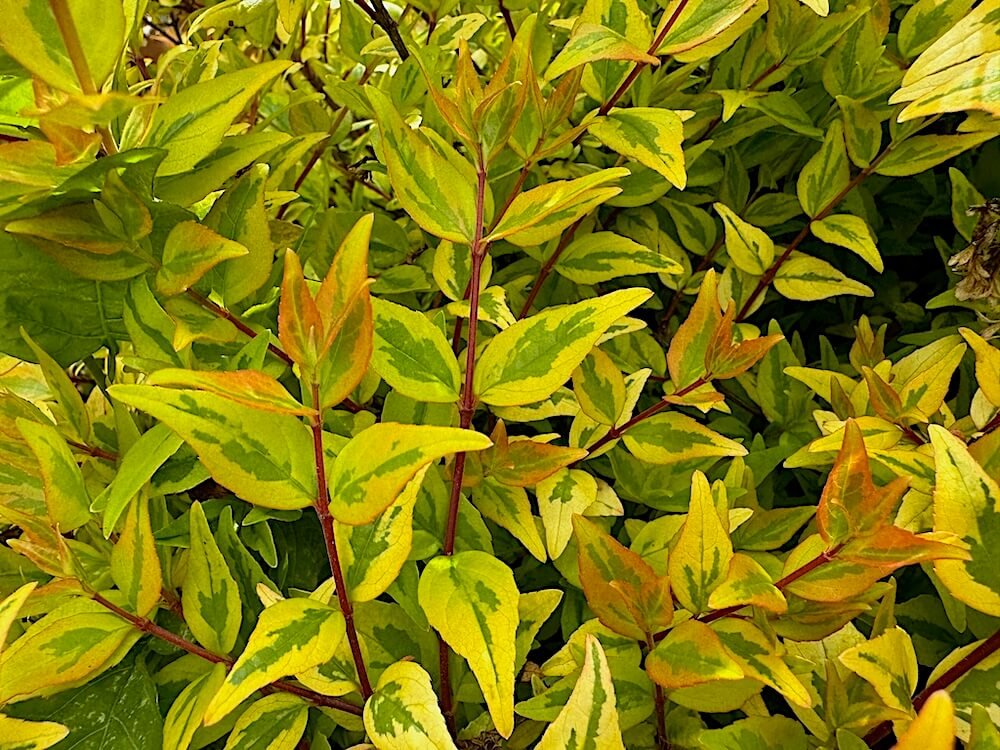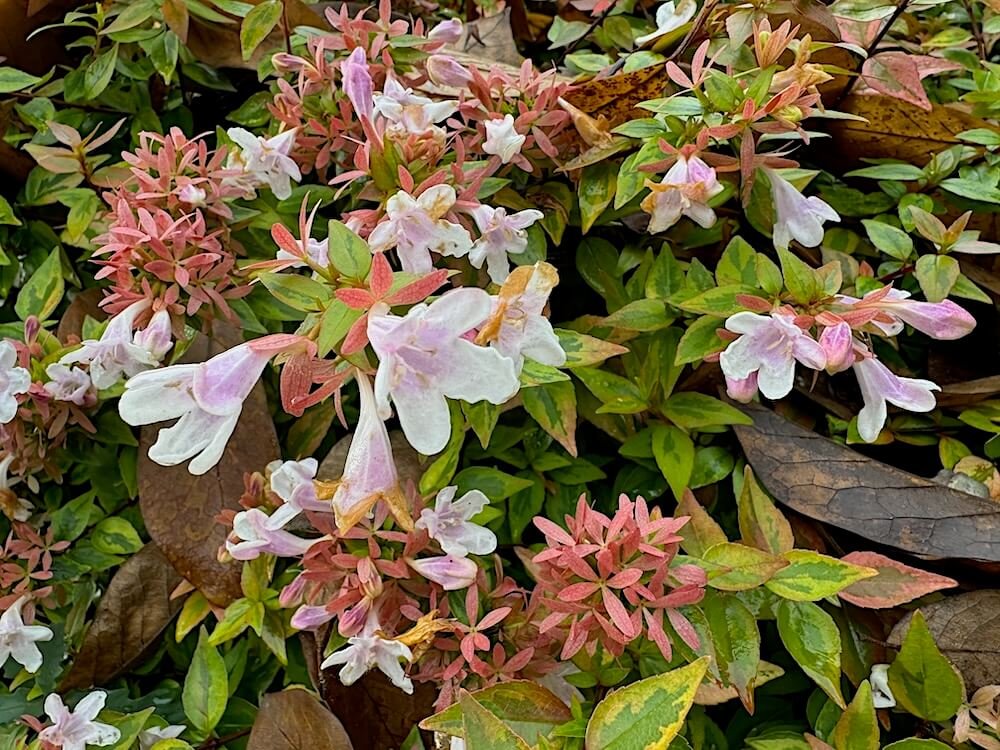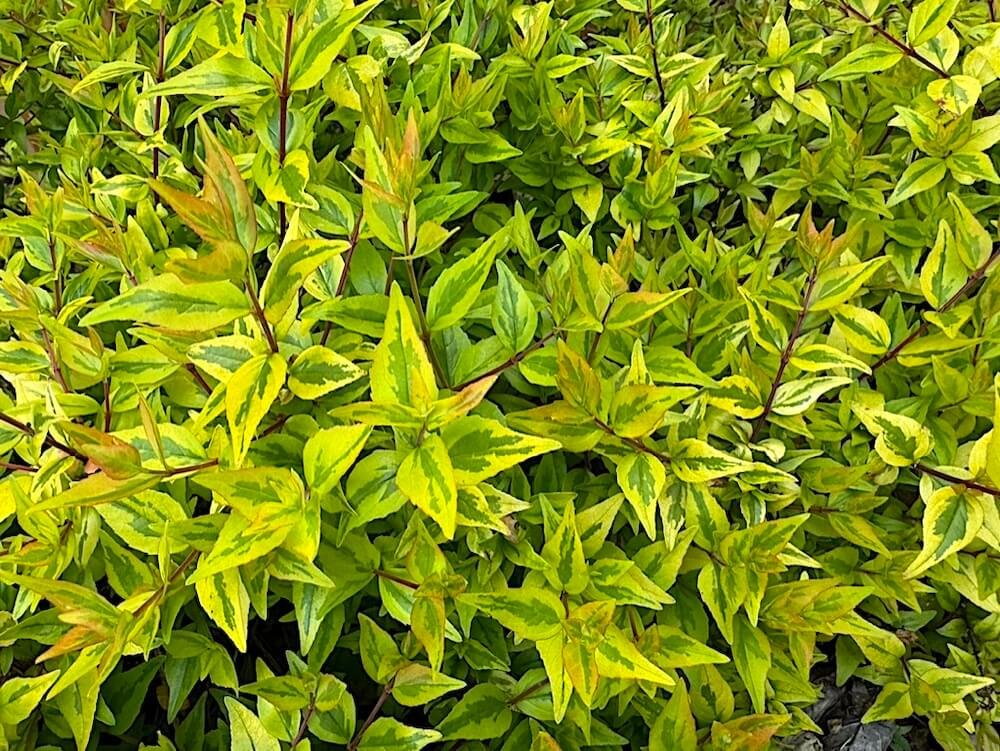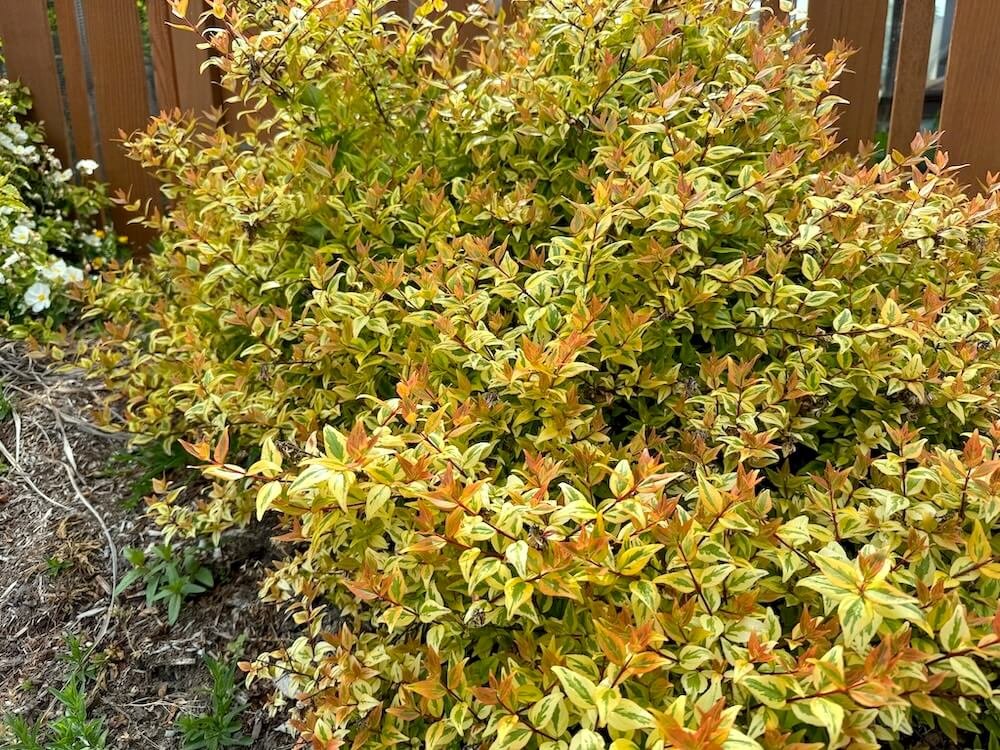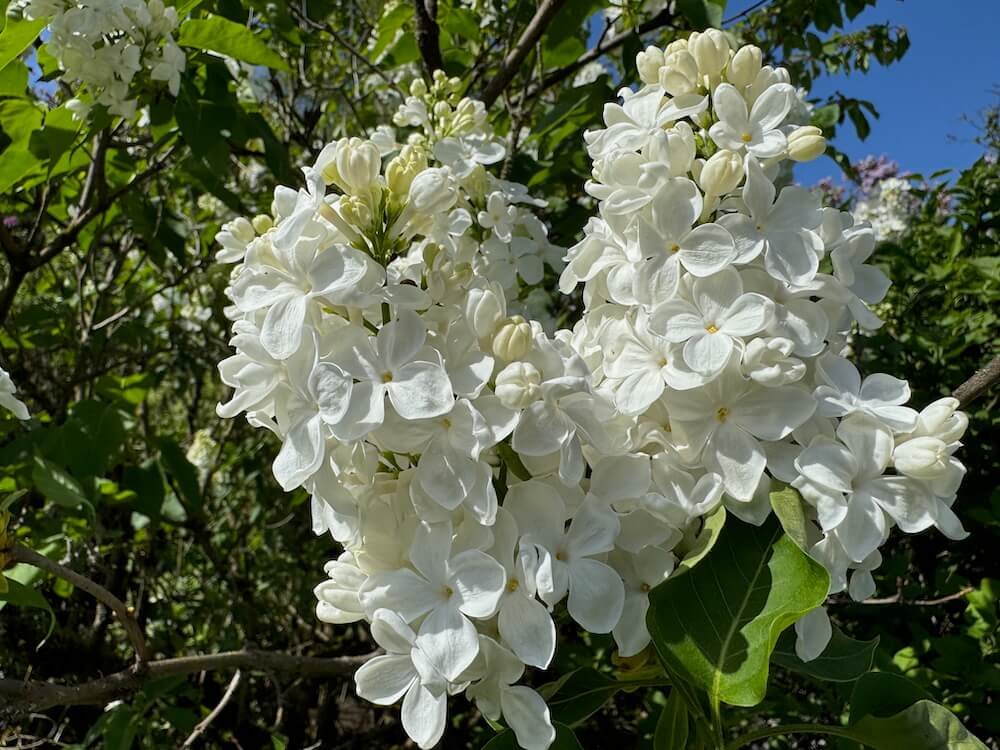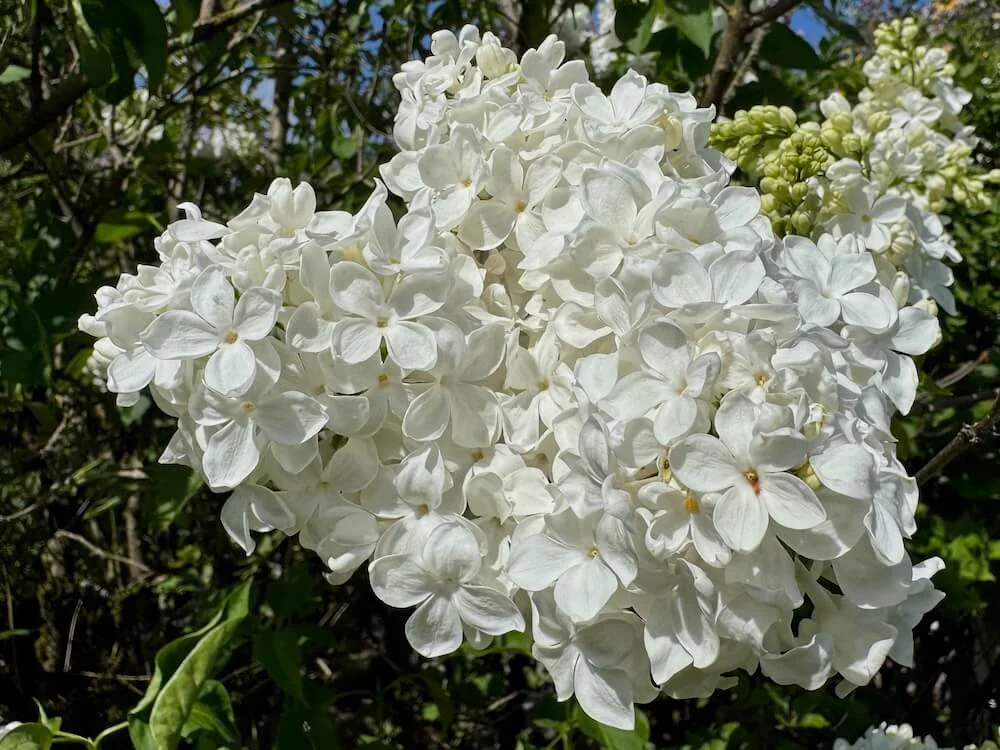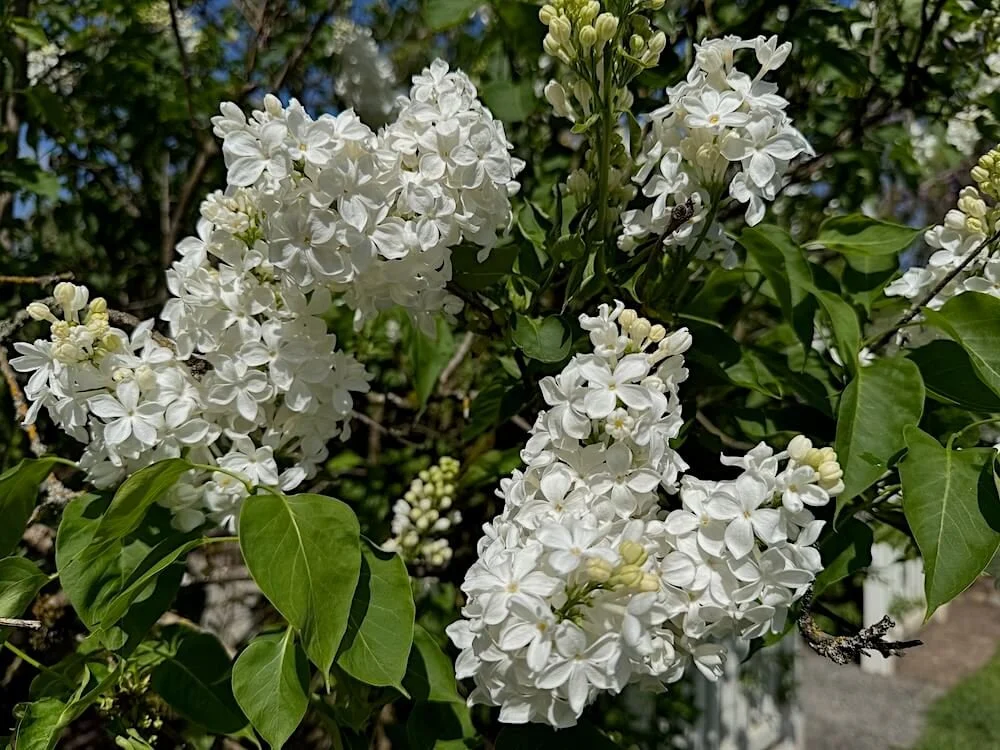DESCRIPTION
Viburnum trilobum is a deciduous shrub valued for its year-round interest. In late spring, it produces clusters of creamy white, lacecap-like flowers that attract pollinators. By late summer to fall, these flowers give way to bright red, berry-like drupes that persist into winter, providing a source of food for birds and adding seasonal color to the landscape. Its green, maple-like foliage turns vivid shades of red and orange in the autumn, enhancing its ornamental appeal.
Native to North America, Viburnum trilobum thrives in a variety of natural habitats, from woodlands to wetlands. Its adaptability and multi-seasonal interest have made it a popular choice for gardens and naturalized plantings. The shrub's combination of attractive flowers, colorful fruits, and vibrant fall foliage makes it a versatile and enduring option for enhancing wildlife-friendly or ornamental landscapes.
DESCRIPTION
Viburnum trilobum is a deciduous shrub valued for its year-round interest. In late spring, it produces clusters of creamy white, lacecap-like flowers that attract pollinators. By late summer to fall, these flowers give way to bright red, berry-like drupes that persist into winter, providing a source of food for birds and adding seasonal color to the landscape. Its green, maple-like foliage turns vivid shades of red and orange in the autumn, enhancing its ornamental appeal.
Native to North America, Viburnum trilobum thrives in a variety of natural habitats, from woodlands to wetlands. Its adaptability and multi-seasonal interest have made it a popular choice for gardens and naturalized plantings. The shrub's combination of attractive flowers, colorful fruits, and vibrant fall foliage makes it a versatile and enduring option for enhancing wildlife-friendly or ornamental landscapes.

